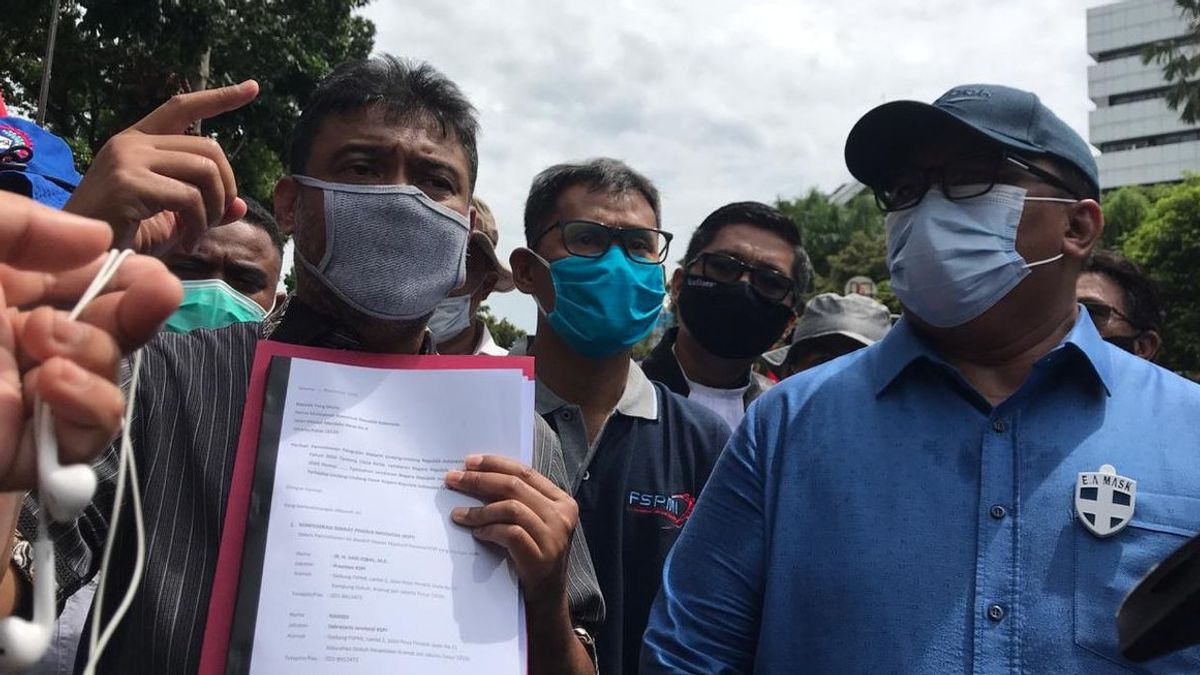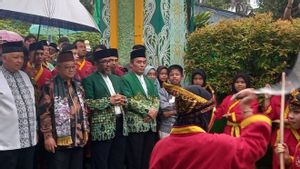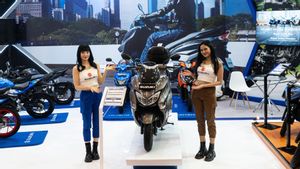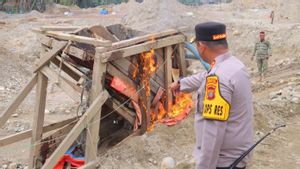JAKARTA - The President of the Confederation of Indonesian Trade Unions (KSPI) Said Iqbal said that the implementation of an emergency Community Activity Restriction (PPKM) using the isolation method was not effective for manufacturing or industrial workers. The reason is that they cannot work from home such as office employees or trade services.
"KSPI believes that the Emergency PPKM method is ineffective due to the fact that manufacturing and manufacturing management companies are still working 100 percent," said Said Iqbal in an online press conference, Thursday, July 15.
This is the reason why the spread of COVID-19 occurs in factories, causing clusters. The workers, said Iqbal, could not keep their distance when carrying out the production of an item.
"In the production station it is impossible to keep a distance and it is impossible to have WFH or work from home some 50 percent from home. It is impossible because between work stations are related," he said.
"For example, work station number 1 then jumps because WFH and WFO are 50 percent impossible. So if the production process is closed, everyone is off because it is a supply chain, a link that does not break in the processing industry," added Iqbal.
Furthermore, Iqbal said that even if factories carry out work from home, this can only be done in the office. Meanwhile, working workers are not able to carry out their activities from home.
"That explains the many clusters of workers, processing factory workers whose spikes (exposure to COVID-19, ed) are very high," he said.
Previously reported, KSPI also said that around 10 percent of factory or manufacturing workers were exposed to COVID-19. He said this was very worrying and endangered the survival of the business world and the lives of workers.
The figure of 10 percent of manufacturing workers exposed to COVID-19 is based on information in the field from a number of labor-intensive and capital-intensive labor companies in the Greater Jakarta, Karawang, Purwakarta, Serang, Cilegon, Batam, Makassar, Gresik, Sidoarjo, Surabaya, Pasuruan areas. , Medang, Semarang, Kendal, and a number of other industrial areas.
The English, Chinese, Japanese, Arabic, and French versions are automatically generated by the AI. So there may still be inaccuracies in translating, please always see Indonesian as our main language. (system supported by DigitalSiber.id)













